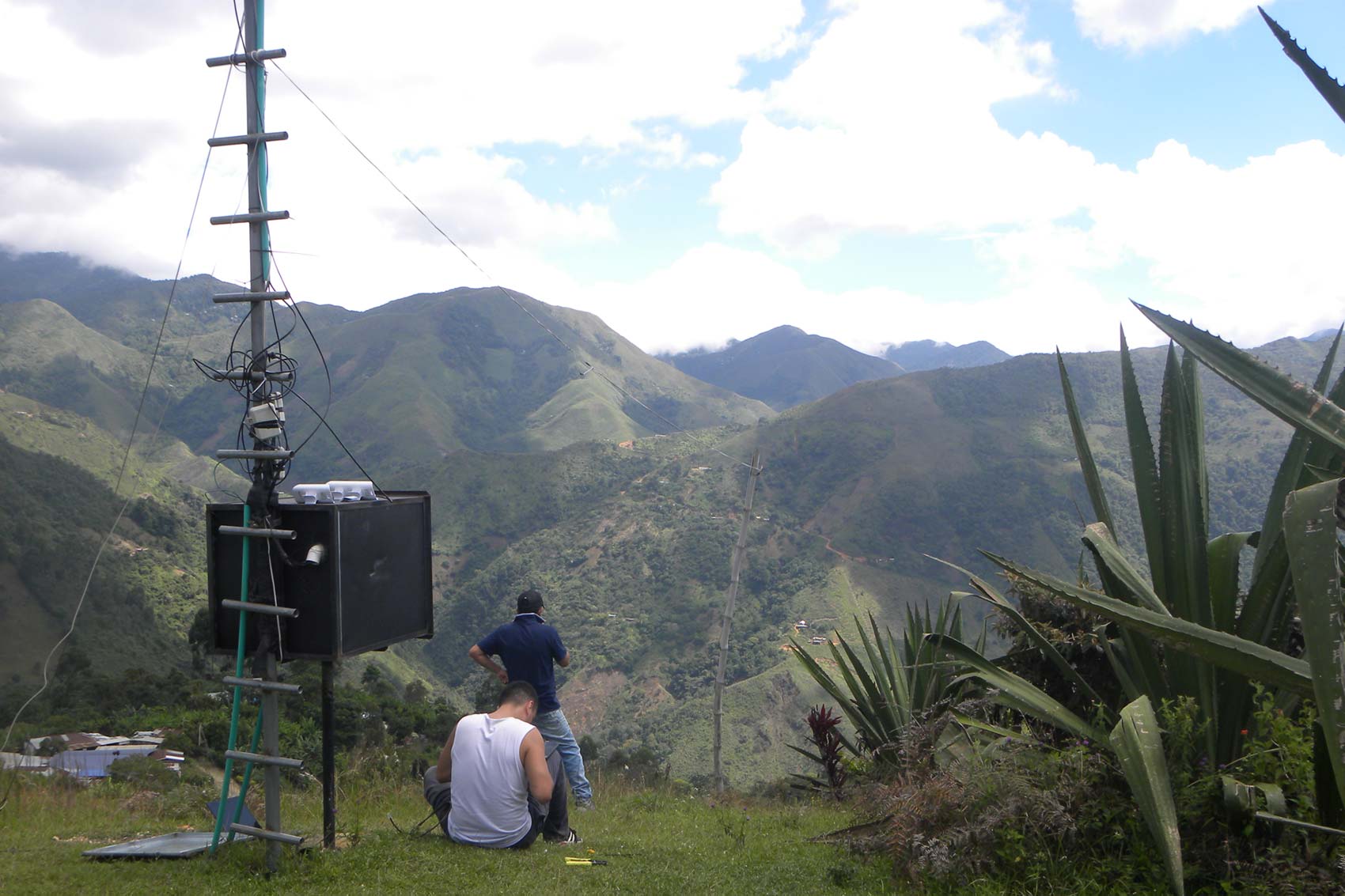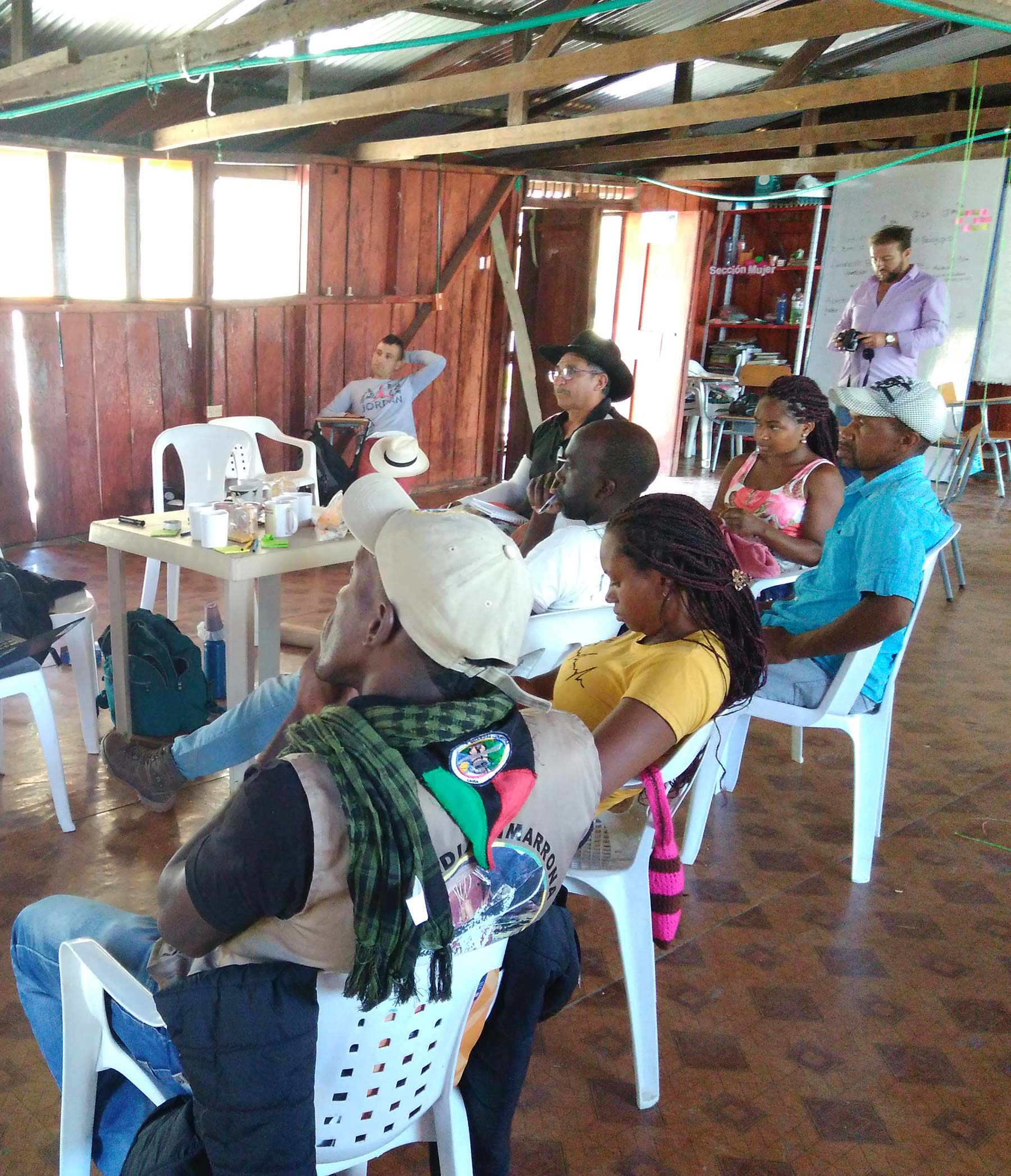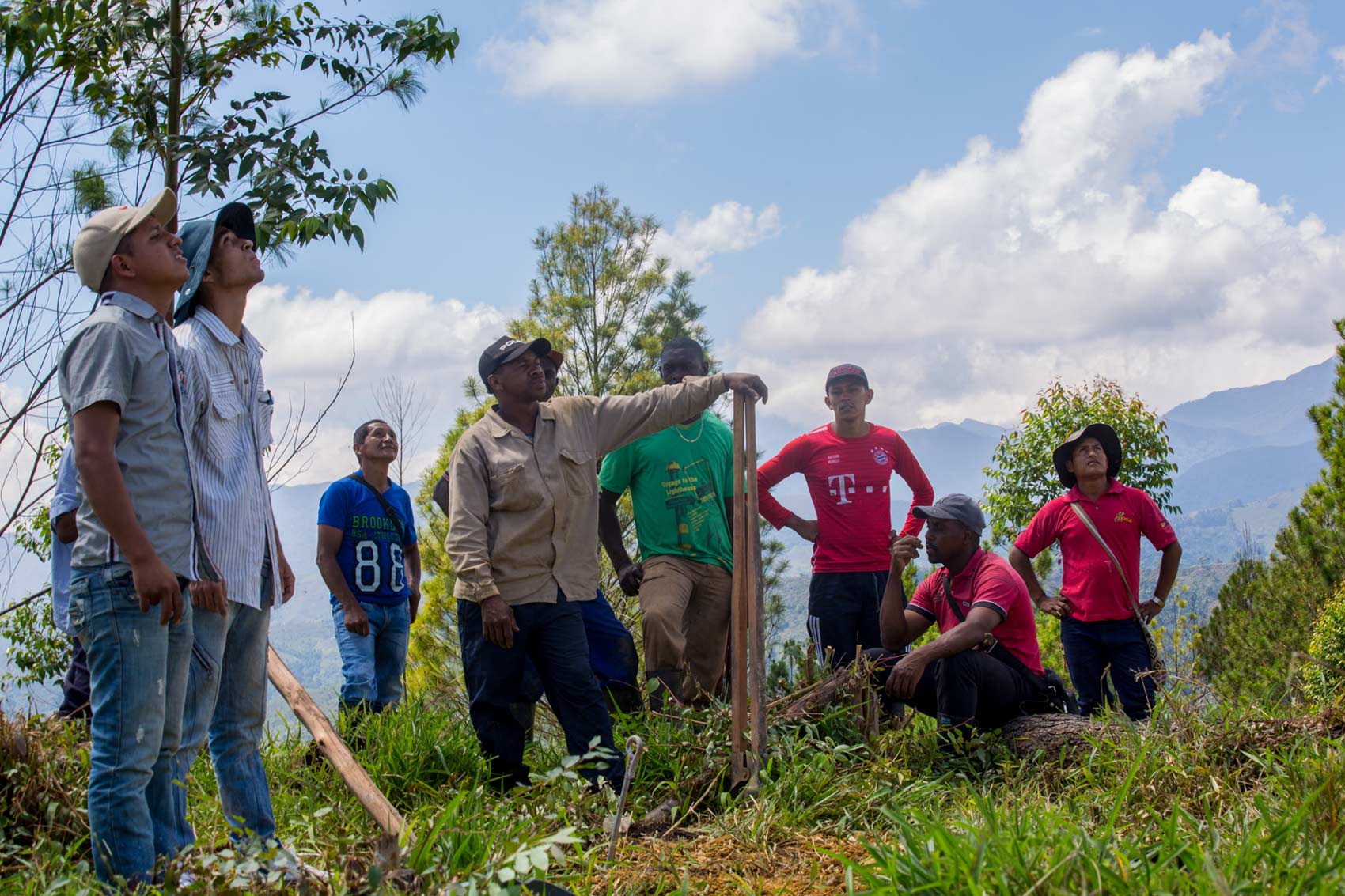
The United Nations' Global Digital Compact, a consultative process to promote a shared understanding of key digital principles to ensure that the internet remains a public good, has invited member states and stakeholders to discuss key topics throughout a series of thematic deep dives. On 27 March, Colombia-based APC member Colnodo presented a statement at the thematic deep dive on digital inclusion and connectivity. We spoke with Julián Casasbuenas, Colnodo's director and Secretary of APC's executive board of directors, about the organisation's experiences with community networks and why it is important for civil society to participate in the GDC process.
At the Global Digital Compact (GDC) deep dive on digital inclusion and connectivity, you spoke about Colnodo’s work with community networks and the importance of connecting all people. How have your experiences with community networks informed your intervention?
From all the work that we have been doing on community networks along with APC and Rhizomatica, we have understood how important it is to have access to spectrum and how technology can bring connectivity to rural areas. In countries like Colombia, in rural areas even near our major cities like in Bogota, we have very poor connectivity that doesn't allow people to really get all the benefits of the internet. The ways we are using technology to communicate is increasing and all these people that are not connected are missing all these opportunities that technology gives us.

We believe that community networks are one of the alternatives. They’re not the only one and not intended to replace all the efforts from small operators, big operators or governments, but we believe they’re the only way that we can provide people with an alternative to manage their own connectivity.
We have been working with the ministry of ICTs in Colombia, with the agency of spectrum, and also with the regulator. For more than five years we have been trying to show them these alternatives. Even if we have international organisations like the ITU recommending these kinds of initiatives, recognition of the importance of community networks is still needed on a regional level. When you want to do these kinds of initiatives on-site, having the support of the government is very hard. They are more focused on the work with large operators and dealing with all those initiatives.
So this is what we have been reflecting about – what are the barriers that we are facing every day to get support from the state? It's in the recommendations that we presented to the GDC, but there is no political commitment in our country to support these kinds of initiatives. We are invited very often to events, forums, chats, a lot of spaces where they are very much interested in how we work with community networks. And they love all the impact that these initiatives have, but in the end it’s international organisations like APC, ISOC and others that have been interested in implementing changes. And of course Rhizomatica and other partners are interested, not to forget Guifi.net in Catalonia where they have, I believe, the largest community networks in the world.
What do you see as the value of community networks?
From the experiences that we have had here in Colombia, at Colnodo, there are a lot of results after the implementation of a community network that we didn’t foresee in advance. It’s a lot of positive changes in the community, especially among women, because most of the community networks that we implement target communities that allow and promote the participation of women in the process. Seeing them operating, their self esteem is really changed in a positive way. They realise that they are able to do a lot of things, to deal with technology. At the beginning they say, “No, this is not for me. I don’t know anything about technology.” And then they realise they can do it and that’s a huge change for them – not only for them but also within their communities.

I can give you a lot of examples about how these initiatives were working together to give the opportunity to learn about technology and use it in a good way, because our role is not only to bring connectivity but to train people in the use of different tools. It's a change of the way they see the technology and that makes a big difference for them in the short term. That's what really motivates us to do this, because it is also proposing self-sustainable models, probably not in terms of finance, but if you analyse the social impact of these projects, it’s huge.
Of course we are receiving funds to set up and buy all the equipment and so on, but then all that goes to the community and they continue with the operation and maintenance of the network. They manage, with our support, to understand how the project should cover the costs, but they decide how much they want to pay for that, and how much they ask for support from their community. It's a self-sustainable model and so far all the networks that we have deployed are operating. I won't say that it's perfect, I won't say that there aren’t technical problems – there are a lot of challenges, but they are operating.
How can civil society mobilise to advocate for and increase the visibility and value of community networks?
The role of civil society is to raise awareness on the importance and value in connecting the unconnected populations in rural and remote areas. The support of local community operators is important to encourage the active participation and training of communities in the management and maintenance of community networks. Academia has also been doing research and deployment of new technologies and things that can be done through community network implementation, and has also been supporting the training of the community.
In the discussions that we are having now with the ministry, they are proposing a resolution, but if you read it, you understand they assume the community networks will automatically be able to emerge from nothing, without any support. It’s like “get organised and connect yourselves”, but they don't mention the importance of academia, civil society or even the public sector in working together to create all this.
We are looking at all these experiences around the world of community networks to create what we call enabling environments – policies and support from the government to really be able to develop these kinds of projects as we have been doing for the last seven years here in Colombia.
During the GDC deep dive, there were government representatives from Mexico and the UK. What role do you think such representatives have in the GDC process?
Yes, that was a surprise for me, a good surprise to see these representatives specifically mentioning community networks.
The more we have the opportunity to present these kinds of things in these spaces, the more we’ll create a way to change the minds of governments to not be so aligned with commercial telcos as the ones that will connect all of humanity. It has been more than 25 years in Colombia and the model they work with won’t bring stable, sustainable connectivity to isolated communities.

We are not forcing anyone to use this model – if you find an isolated community and they say they want to continue being isolated, that’s fine too! My feeling is that this is an alternative that is sometimes seen as competition, like we don't want the big companies to do their work anymore or that we are going to get them into trouble because we will be competing in unfair ways. I believe that the more we have support from international organisations, the easier it will be for organisations like APC and others who are working on these initiatives to make arguments to our governments to change their minds and also consider this kind of possibility to get connected.
Why is it important for Colnodo and other civil society groups to participate in the GDC process?
The value is to reinforce all these issues. We need to make sure that we continue building this internet and these initiatives of using technology for enhanced quality of life for people worldwide. Yesterday we had a meeting with the Colombian IGF. What we are doing is bringing together stakeholders here in Colombia. I believe that's very valuable because I remember 10 years ago the first IGF meetings were three or four people, and yesterday we were 30 people talking about these issues.
I think it's also very important, as Carlos Afonso from Nupef mentioned in our meeting of the APC Global Digital Compact explanatory brief, to recognise all the efforts that we have been doing as civil society in the past for the stability of the internet, such as all the regional meetings, participation at NETmundial, and all these spaces that we have to make sure that all these things that we have been building the last years are maintained and improved, as one of the main principles of APC is to use technology to reduce poverty.
Upcoming thematic deep dives for the GDC are scheduled on the following dates:
- Human rights online: 8 May 2023
- Digital trust and security: 25 May 2023
- Artificial intelligence and other emerging technologies: 25 May 2023
- Global digital commons: 14 June 2023
- Accelerating progress on the Sustainable Development Goals (SDGs): 14 June 2023
Each deep dive has two sessions: 10:00 - 13:00 and 15:00 - 18:00 ET. Information on registering is available here.
Further Reading:
–APC's introductory brief on the Global Digital Compact (GDC).
–APC's statements from previous thematic deep dives:
- Digital inclusion and connectivity: 27 March 2023
- Internet governance: 13 April 2023
- Data protection: 24 April 2023